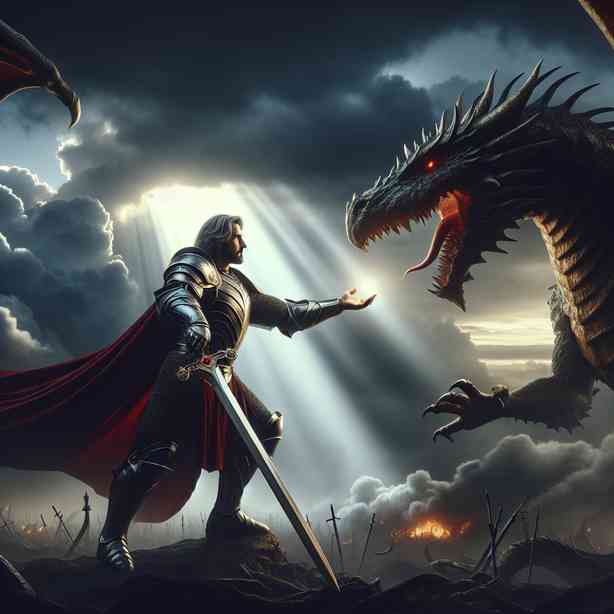
When the Hero Refuses to Win
In the landscape of storytelling, heroes are often seen as figures destined for glory — the champions of justice who triumph against all odds. Yet, there exists a different narrative thread, one where the hero’s journey involves an apparent refusal to embrace victory. This theme poses an intriguing exploration of the implications of choice, the limits of heroism, and the moral complexities embedded within the struggles of the characters. By examining this motif, we delve deeper into the psyche of characters who choose paths less traveled, and we reflect on what these decisions reveal about humanity and resilience.
The refusal to win can be illustrated through various lenses, whether it’s through a character’s moral scruples, personal sacrifices, or an unwillingness to conform to societal expectations. Heroes balk at the notion of victory when it comes at a cost that contradicts their values or integrity. This refusal often stems from a profound understanding of the consequences that triumph can entail. By choosing not to win, these heroes make a statement, one that transcends personal success to address larger ethical dilemmas in their world.
One poignant example can be found in literary works such as “Les Misérables” by Victor Hugo. Jean Valjean epitomizes this concept as he grapples with his past and the weight of his choices. His repeated refusals of personal gain—whether by choosing to protect others over his own safety or continuously offering second chances to those around him—illustrate a hero driven more by compassion than by the pursuit of glory. In doing so, he demonstrates that true heroism often lies not in attaining victory but in the willingness to sacrifice oneself for a greater good.
Moreover, the refusal to win distinguishes these characters, positioning them as complex individuals shaped by their experiences and beliefs. They reject a simplistic view of success; instead, they engage with dilemmas that resonate deeply with their moral compass. In this sense, heroic refusal functions as a critique of conventional narratives that idolize victory without examining the sacrifices made along the way.
In film and media, characters like Frodo Baggins from “The Lord of the Rings” series exemplify this struggle. While tasked with destroying the One Ring, Frodo’s journey reveals the toll success can take on the individual. His burden grows heavier as he nears the climax of his quest, reflecting a reluctance to claim victory without recognizing the deep scars left by his journey. Frodo ultimately experiences a sense of loss that accompanies both his success and his heroic journey, showcasing the inherent complexity in refusing to engage wholly with victory.
This refusal is not merely an act of personal decision but speaks to larger societal constructs. In many narratives, heroes who refuse to win often challenge the status quo and advocate for change. They raise critical questions about the morality of power and the societal systems that glorify certain types of success. When a hero opts out of conventional victory, it invites viewers and readers alike to contemplate the systems in place that dictate who gets to be a hero and what defines winning.
By embodying virtues such as humility, empathy, and selflessness, these characters serve as reminders of the human capacity for growth beyond mere success. Their stories encourage audiences to reflect on their values, emphasizing that sometimes, the greatest acts of rebellion lie not in achieving victory but in standing up for what is right, even when it means sacrificing personal gain or acclaim.
Ultimately, the exploration of heroes who refuse to win produces rich narratives that challenge our understanding of heroism. These stories illustrate that heroism can manifest in many forms, and victory can be redefined as the choices hero figures make that contribute to a larger cause rather than individual accolades. As we continue to engage with these narratives, we create space to celebrate the complexity of human experience, where not every triumph is sugar-coated, nor every journey ends with applause.
In conclusion, the concept of the hero who refuses to win enriches our understanding of storytelling and the human condition. By examining the intricate motivations behind these characters’ decisions, we uncover deeper truths about courage, morality, and what it means to truly fight for a cause. By embracing these themes, we not only redefine the notion of victory but also appreciate the resilience and strength required to make difficult choices in the face of overwhelming odds. Through the lens of these complex heroes, we gain insight into the delicate balance between ambition and morality, prompting us to reflect on our battles, both internal and external, and the legacies we wish to leave behind.


